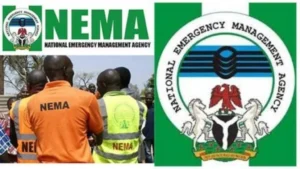
The Independent Corrupt Practices and Other Related Offences Commission (ICPC) has named 15 ministries, departments, and agencies (MDAs) as ‘high corruption risk’ in its recent ‘Integrity and Compliance’ report.
Published on Thursday, the report evaluated 330 MDAs, with 308 successfully assessed. Of these, 15 MDAs were marked as non-responsive, while seven were exempted based on government policies.
The ICPC’s ‘Ethics and Integrity Compliance Scorecard’ (EICS) highlighted the Joint Admission and Matriculation Board (JAMB) as the top-performing agency, achieving a score of 89.75. The Nigerian Railway Corporation (NRC) followed with a score of 89.33, and the Nigerian Bulk Electricity Trading PLC (NBET) came in third with 88.73.
In contrast, agencies such as the Supreme Court of Nigeria, the National Hajj Commission of Nigeria (NAHCON), the Nigeria Press Council (NPC), the University of Ibadan (UI), and Obafemi Awolowo University (OAU) were all recorded with zero points, thereby categorizing them as “high corruption risk.”
The scorecard evaluated institutional integrity based on three key performance indicators: management culture and structure, financial management systems, and administrative processes.
ICPC spokesperson Demola Bakare noted that the EICS aims to enhance compliance with ethical standards and anti-corruption initiatives. “For the year 2024, the tool covered 323 responsive MDAs, with 15 designated as high corruption risk,” Bakare explained. The scorecard aims to identify organizational gaps, support government policy development, encourage self-assessment among MDAs, and drive improvements through objective assessments.
The report revealed that no MDA achieved full compliance with the evaluated standards. Notably, 29.55% of MDAs demonstrated substantial compliance, 51.62% had partial compliance, 15.91% showed poor compliance, and 2.92% were entirely non-compliant.
The ICPC also released its 2023-2024 Constituency and Executive Projects Tracking Report, which monitored government-funded initiatives in sectors such as education, health, agriculture, and infrastructure.
Between 2023 and 2024, the ICPC tracked 1,500 projects worth N610 billion across 22 states. Key findings included issues of substandard, partially completed, or abandoned projects, problems stemming from a lack of coordination between outgoing and incoming legislators, the misuse of project vehicles, and instances of contract over-invoicing and under-performance.
Bakare disclosed that the anti-graft commission recovered N346 million in cash and N400 million in assets while saving the government N30 billion through its tracking efforts.
These findings underscore the ongoing challenges regarding ethical compliance and project implementation within Nigeria’s public sector, highlighting the pressing need for enhanced oversight and accountability.







